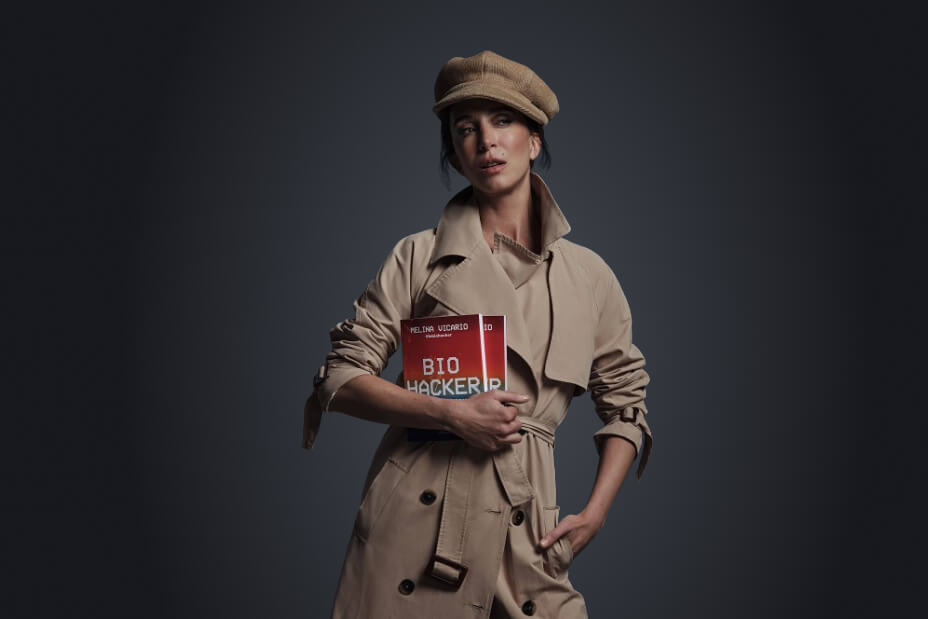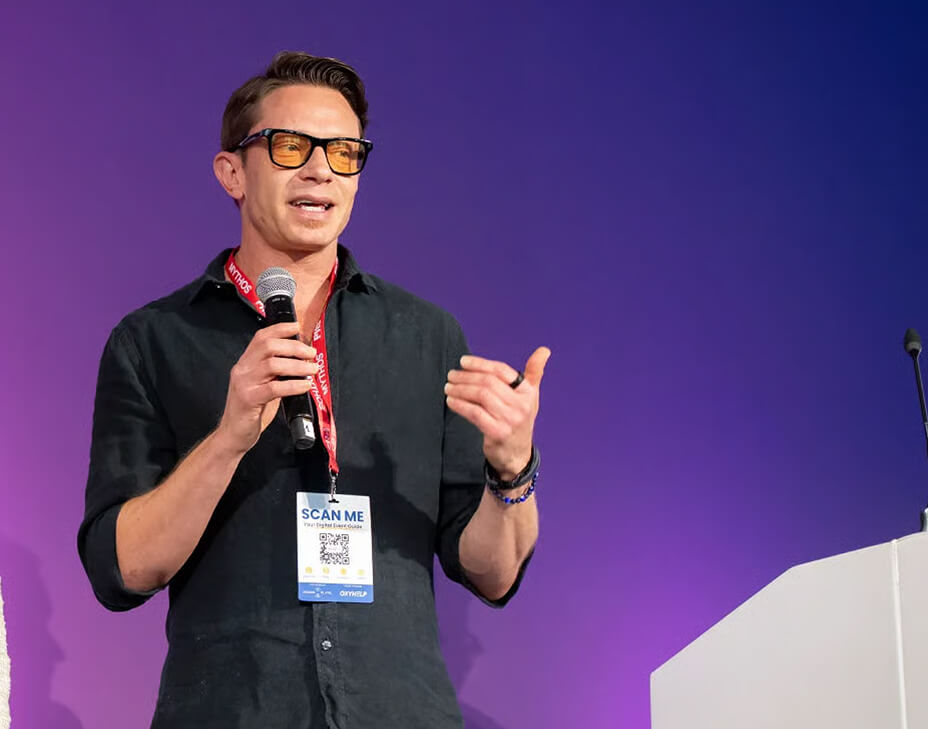Can Cave Exploring Turn Back the Clock?
Ana (61) credits her youthful energy to spending time in nature, around younger people, and finding joy in everyday things. Read on to discover more about her inspiring life and unique experiences.
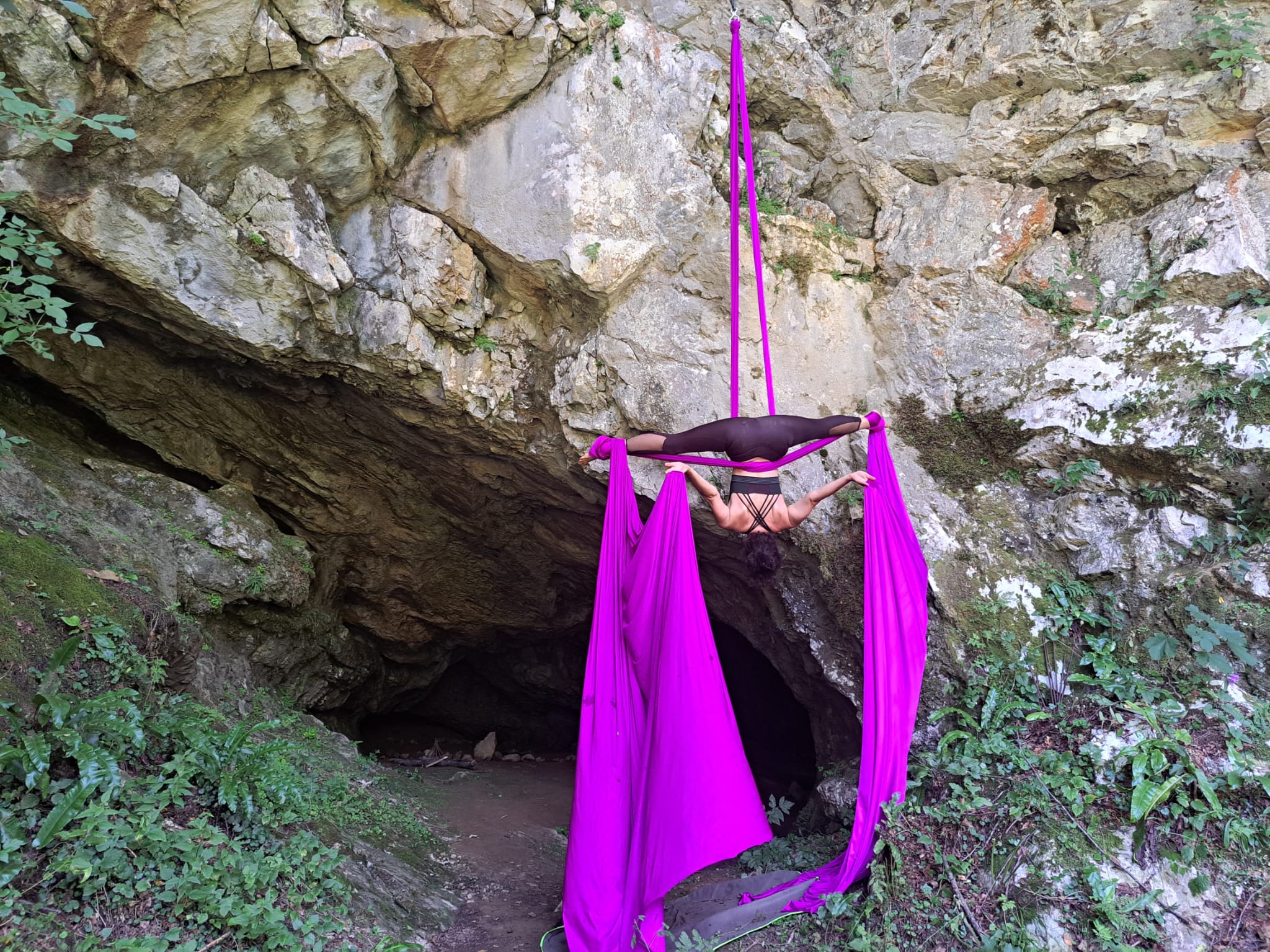
It’s a day of firsts! Today I got to interview the first woman to join the Croatian mountain rescue service, as well as the first person who credits their longevity to spending time in underground cave systems. Find out more about Ana Bakšić by reading the interview below.
You’re the first woman in the Croatian mountain rescue service. How did you get that job?
Well, a lot of people don’t know this, but it’s not a job, all of the rescuers are volunteers.
I’m shocked by this. I mean, this makes your work all the more impressive.
You really have to have a drive and a passion for these things. That’s why no one can apply for the position, instead, you have to be recommended by 2 people from the organisation. The process is set up that way, because of the seriousness of our activities and the need to be able to completely trust your team members.
We’re literally putting our lives in the hands of our co-volunteers, so we have strict rules.
Getting 2 recommendations is just the first step. After that, you’ll need to go through 2 years of education - workshops and lectures, to be able to pass your test, which is a whole day affair.
The test includes showing every technical procedure needed for a rescuer. We don’t get tested on just a few things, but on everything you could end up having to do in a real rescue mission.
About 30 years ago, I was the first woman to complete that test and here I am, so many years after, still active.
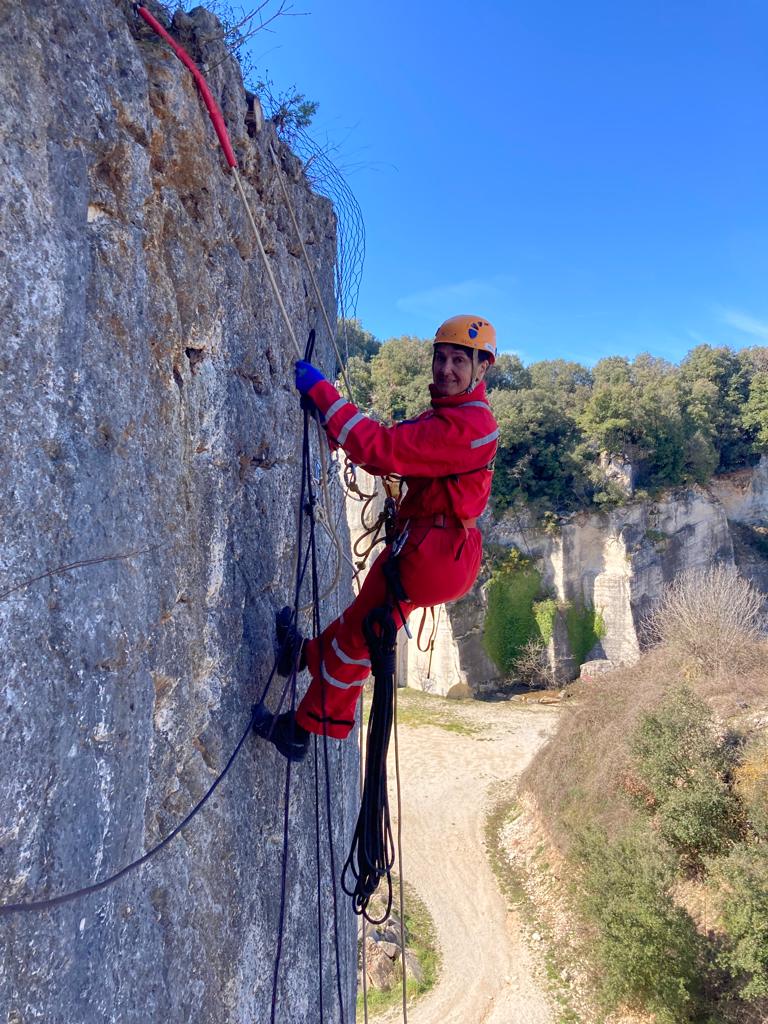
How did you end up being selected for the recommendations in the first place?
Well, we usually recruit experienced hikers and mountaineers. I was and still am a speleologist (cave explorer), so that’s how I was found.
I already had a lot of survival skills and knew how to thrive in the wilderness.
I can see why you were recommended. I’m curious, what happens once you get the call that someone is in trouble?
Well, we all have regular jobs but keep a packed bag with us in case of emergency, because you never know when a call is gonna come through.
The A team has a weekly rotation where everyone keeps the official phone and company car for a week straight. Once that phone rings, the on-duty rescuer will inform us of the situation in our WhatsApp group text.
We estimate how many people are needed and everyone who is available sends a message. That way we can organise and start the rescue mission fairly quickly.
You never know what to expect and sometimes we don’t perform a rescue, but we collect remains.
That must be a stressful situation. How do you deal with stress?
What I usually do is - talk to someone. It unburdens me and helps me see a different perspective. Sometimes we’re so in our heads, that we need a friend to tell us that we’re looking at the situation from the wrong angle.
It’s also important to know when it’s time to speak to a professional. Don’t be afraid to seek help from a psychologist. They can help you treat the root problem. I think too many people resort to popping pills and instead of trying to deal with the issues they just soothe their symptoms.
That’s what I like about the younger generations. They have much more confidence and know when enough is enough.
When I was younger I was so worried about being liked and what people would think of me. But now, I try to worry less and enjoy more. I started aerial dancing relatively recently and I love doing it with people of all ages.
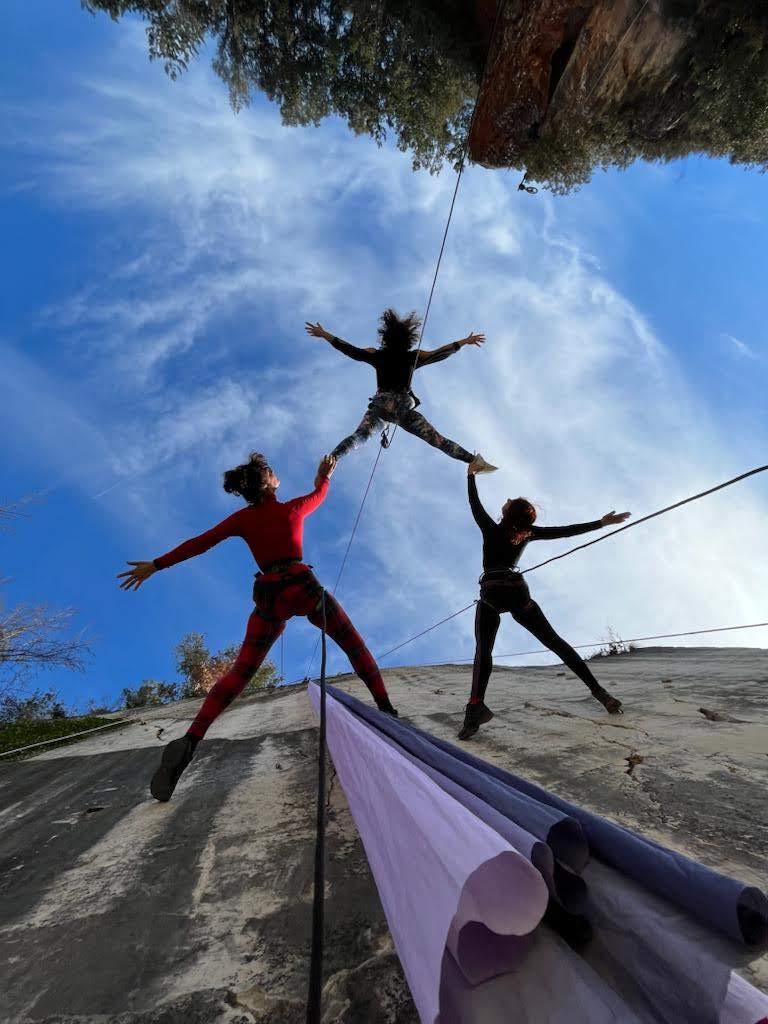
What amazing advice. Were you in sports all of your life?
I started exploring caves when I was 18 and that’s a pretty physically demanding activity. I love hiking and spending time in nature so most of my weekends are spent there.
My favourite caves are ones that still have some unexplored parts, like Crnopac and Sjeverni Velebit which has 4 caves deeper than 1000 km.
When you’re exploring such caves, you can spend a few nights (or 9) camping out in them.
After everything I’ve learned about you, I need to know how old are you and what is your GlycanAge?
I’m 61 and my GlycanAge is 58.
I loved the consultation with the specialist, she explained everything and gave me some great advice - to include more strength training in my workout routine, start taking specific supplements and check my vitamin D levels.
So what is your secret to longevity?
Hahahha… I don’t know that I have a secret, but I think it’s important to surround yourself with younger people. They have such a positive energy and it’s important to be around that.
Interestingly, there is some research that suggests that animals who live in caves have longer lives compared to the same species that stay above the ground. Maybe that negatively ionising air has something to do with it.
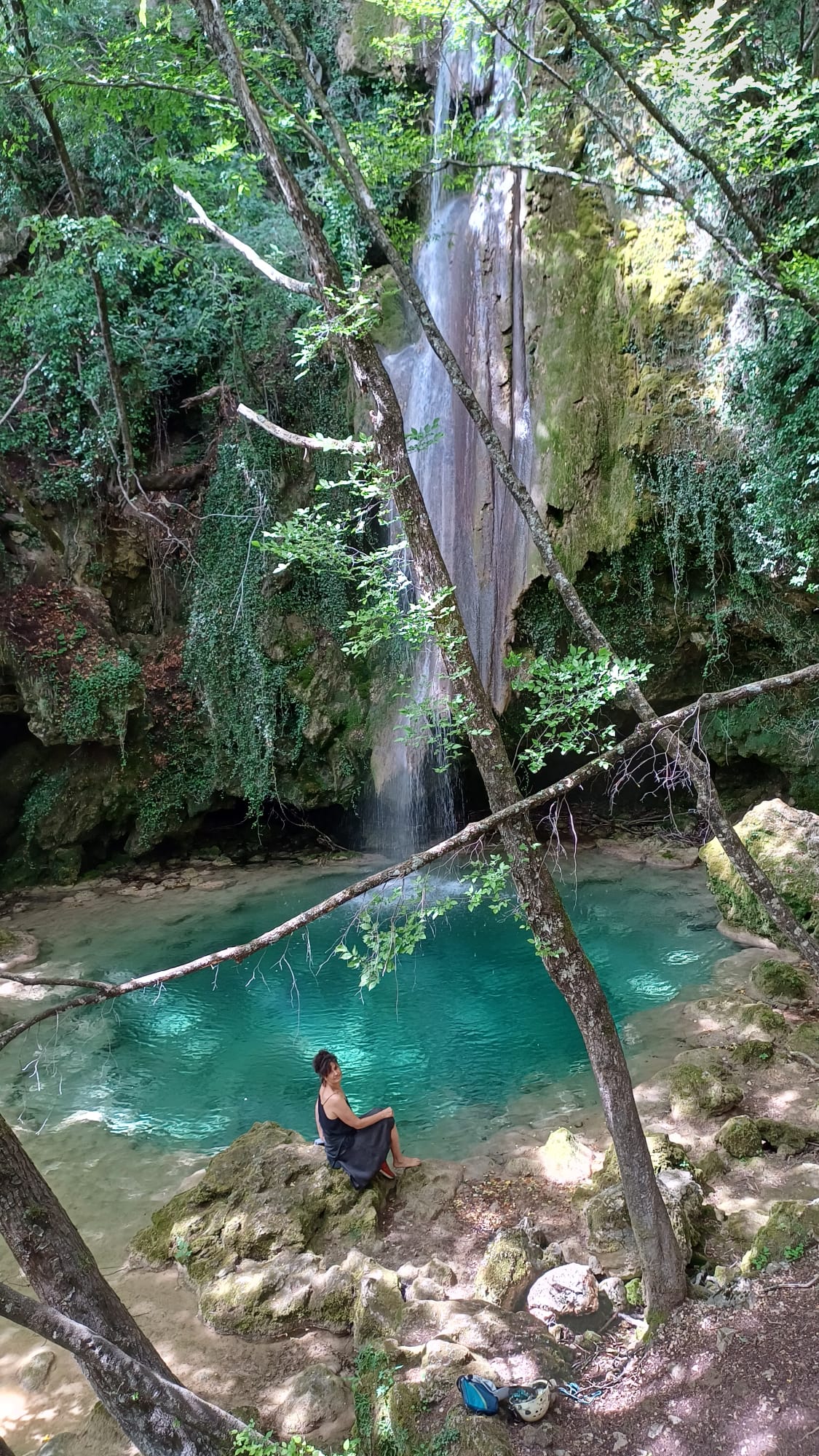
I also have good genetics, drink a lot of water and spend a lot of time outdoors. I went into early retirement in order to use my days doing things that I enjoy. It’s important to find joy in the little things.

